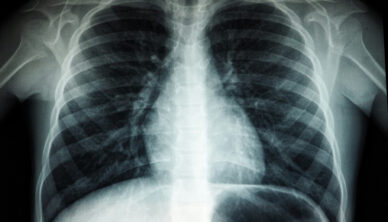Contents
Shortness of Breath

Shortness of breath (dyspnoea) is a distressing symptom that can vary from mild to severe. Understand the causes and treatment of this condition and when to seek medical attention.
What is Shortness of Breath?
Shortness of breath, also known as dyspnoea, is a symptom characterized by a feeling of breathlessness or difficulty breathing. It can vary from mild, temporary episodes to severe, persistent discomfort.
Causes
Shortness of breath can have various underlying causes, including:
- Respiratory Infections: Common respiratory infections such as pneumonia, bronchitis, or influenza can lead to inflammation and narrowing of the airways, resulting in difficulty breathing.
- Chronic Respiratory Conditions: Conditions such as asthma, chronic obstructive pulmonary disease (COPD), or interstitial lung disease can cause persistent shortness of breath due to ongoing inflammation or damage to the lungs.
- Cardiovascular Conditions: Heart-related issues, including heart failure, coronary artery disease, or arrhythmias, can impair the heart’s ability to pump blood effectively, leading to fluid buildup in the lungs and shortness of breath.
- Anaemia: Anaemia, a condition characterized by a low red blood cell count or insufficient haemoglobin, can reduce the blood’s ability to carry oxygen to the body’s tissues, resulting in breathlessness, especially during exertion.
- Obesity: Excess body weight can put pressure on the chest and abdomen, making it more difficult for the lungs to expand fully and causing shortness of breath, particularly with physical activity.
- Allergies and Environmental Factors: Allergic reactions to environmental triggers such as pollen, dust mites, or pet dander can cause inflammation in the airways, leading to breathing difficulties.
- Anxiety and Panic Disorders: Emotional stress or anxiety can trigger hyperventilation, resulting in rapid breathing and sensations of breathlessness, often accompanied by chest tightness or palpitations.
When to Seek Medical Attention
While occasional shortness of breath may not be cause for immediate concern, it’s important to seek medical attention if you experience any of the following:
- Sudden onset of severe shortness of breath, especially if accompanied by chest pain, fainting, or confusion.
- Shortness of breath that worsens with exertion or does not improve with rest.
- Persistent cough, wheezing, or chest tightness in addition to breathlessness.
- Blue-tinged lips or fingertips, indicating a lack of oxygen in the blood.
- History of heart or lung disease, or if you are at increased risk due to factors such as smoking, obesity, or a sedentary lifestyle.
Diagnosis and Treatment
If you experience persistent or recurrent shortness of breath, your doctor will perform a thorough evaluation, which may include:
- Physical examination to assess respiratory and cardiovascular function.
- Diagnostic tests such as chest X-rays, pulmonary function tests, blood tests, or electrocardiography (ECG) to identify underlying causes.
- Imaging studies such as CT scans or echocardiograms to evaluate lung or heart function.
- Pulmonary rehabilitation programs to improve lung function and breathing techniques.
- Oxygen therapy to increase oxygen levels in the blood, if necessary.
Treatment for shortness of breath depends on the underlying cause and may include:
- Medications to manage respiratory conditions (such as bronchodilators, corticosteroids, or antibiotics for infections) or heart disease (such as ACE inhibitors, beta-blockers, or diuretics).
- Lifestyle modifications, including smoking cessation, weight management, regular exercise, and avoidance of triggers such as allergens or pollutants.
- Oxygen therapy or mechanical ventilation in severe cases where breathing support is needed.
- Surgical interventions for conditions such as lung cancer, or certain congenital heart defects.
Preventing Shortness of Breath
While some causes of shortness of breath may not be entirely preventable, you can reduce your risk by:
- Avoiding smoking and exposure to second-hand smoke, which can damage the lungs and increase the risk of respiratory infections and chronic lung diseases.
- Maintaining a healthy lifestyle, including regular exercise, a balanced diet rich in fruits and vegetables, and adequate hydration to support overall respiratory and cardiovascular health.
- Managing chronic health conditions such as asthma, COPD, or heart disease through regular medical follow-ups, medication adherence, and lifestyle modifications.
- Practicing stress-reducing techniques such as deep breathing exercises, meditation, or mindfulness to alleviate anxiety-related breathlessness.
Conclusion
Shortness of breath can be a distressing symptom that may indicate underlying health issues requiring prompt evaluation and management. By understanding the potential causes, knowing when to seek medical attention, and adopting preventive measures, you can better manage and potentially reduce the impact of breathlessness on your daily life.
15 December 2024
